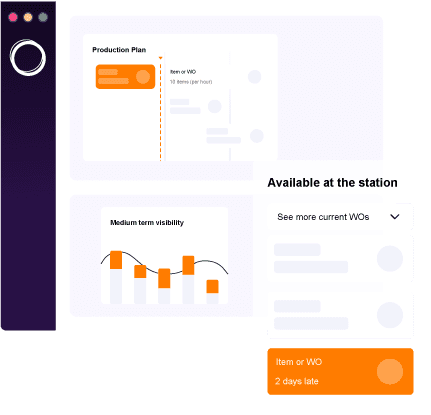INDUSTRY OF THE FUTURE
The industry of the future: challenges and innovations
25/01/2023
What is the industry of the future?
The industry of the future is a term that seems to come straight out of a science fiction work, but it actually refers to the national program for modernizing production methods and the digital transformation of French industrial companies.
In 2015, a painful observation was made: France is lagging behind in the industrial sector.
Specifically, this program aims to address this delay by helping French companies regain their competitiveness and restore their position in international competition through productivity gains related to new technologies.
Bpifrance lists 8 components to this support program:
The modernization of production tools
The digitization of industry
The encouragement to develop new strategies
The encouragement to rethink the business model
Organizational and social change
The opportunity to become competitive again
Customized production at the cost of mass production
Technological bricks that increase productivity, quality, safety, and traceability of goods and processes.
What is the showcase label for the industry of the future?
The Alliance Industry of the Future, a non-profit association working in favor of the modernization of industrial tools and a founding member of the French Fab, created the showcase label for the industry of the future awarded to companies that have made this shift by adopting various new technologies.
The showcase label for the industry of the future has several objectives:
The promotion of the French technological and digital offer at the national and international level, capitalizing on the successes of their initial achievements, across all sectors.
The demonstration of operational performance of production lines and processes, and the value created for the company while placing people at the heart of the transformation underway.
Driving an industrial dynamic through the sharing of success stories aimed at inspiring and promoting good practices.
What is the industry of the future counter?
The French government also supports its industrial strength through a recovery plan that allows SMEs and ETIs to “benefit from cash support concurrently with their investment in the transformation towards the industry of the future. The aid takes the form of a grant for the acquisition of an asset listed as fixed assets and assigned to an industrial activity in French territory. The amount of the aid and the list of eligible assets are defined by decree and by order.”
What does adopting new technologies mean for companies in the industrial sector?
Simply put, a return to competitiveness on the international stage will occur if companies in the industrial sector prioritize creating maximum value.
Automation, robotics, or other types of innovations based on AI represent these new technologies that will enable the production of more, better, faster, in a more sustainable manner and under better conditions (safety…).
If the industry of the future encourages rethinking strategies and business models, it does not necessarily imply overhauling all existing processes, training all resources, or spending significant amounts of money.
AI can allow, among other things, particularly through the collection and processing of data, to facilitate or automate time-consuming processes or tasks that were previously imprecise, thereby giving resources time to handle more value-added tasks, with greater operational efficiency and more meaningful outcomes.
AI-driven solutions are available today on the market and do not require drastic changes. They will provide their users with more visibility and predictability regarding their production, or further help streamline communication and share key data.
As an example, Oplit, a production planning solution that helps manufacturers increase the profitability of their operations by boosting their production targets, works with LISI, a company holding the showcase label for the industry of the future that integrates new technologies at several levels within the company to solve various issues (CSR, quality…). These are the initiatives that the industry of the future aims to standardize.
What does adopting these new technologies mean for people?
Modernizing equipment will still have an impact on employees and their training needs. While not all resources will need intensive training, some key positions will require skill enhancement, and teams will need to be trained in the new tools available. It will then be a matter of leveraging the knowledge of human resources to optimize the use of these technologies.
These changes necessarily involve disruptions, even minimal ones, but we can see in this need for training a very positive sign that humans remain indispensable and cannot be replaced anytime soon.




